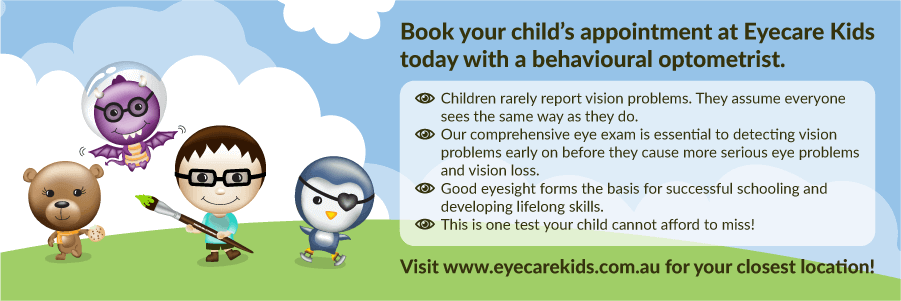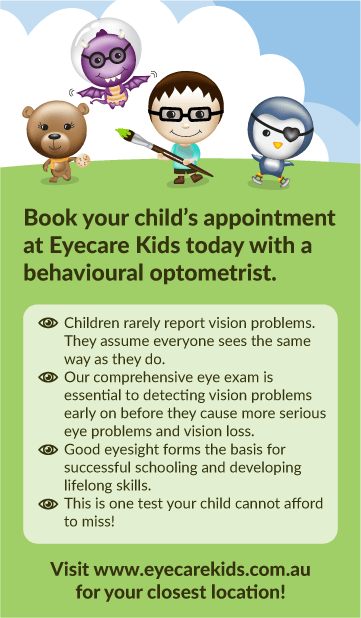Glasses have long been the solution to short-sightedness (myopia), but for many children they aren’t ideal. Corneal re-shaping therapy (Orthokeratology or Ortho-k for short) could be the answer, states Eyecare Kids optometrist Dr SooJin Nam. Ortho-k is the process of using hard contact lenses to re-shape the cornea during the night, leaving children free from glasses during the day, while at school or playing sport.
Myopia affects 3.5 million Australians and is set to increase over the coming years. 31% of school-age children are short-sighted (a significant increase from the original 8%) Often myopia develops in primary school and if uncorrected can have a significant impact on their education and social development, as well as potentially lead to sight-threatening conditions.
“Wearing glasses can be frustrating for kids at school, particularly when playing sport. So to be free of optical correction during the day is very appealing. Ortho-k can be the perfect solution for kids from early primary school years who first develop short-sightedness. Most people – children and adults – find inserting and removing the lenses a little tricky the first few times, but it’s easy to get the hang of and within a matter of days it becomes second nature. Of course, we show the parents and children how to do it and have lots of tips for making it as easy as possible”, commented Soojin Nam.
“As our thoughts turn to the end of winter and warmer weather, many children will spend a significant amount of time cooling off in the pool or sea. Ortho-k is a great solution – kids can splash around and see clearly above and below the surface with no worry about having to take their glasses off before they jump into the pool or concern about wearing contact lenses in the water. ”
Ortho-k works through the use of rigid contact lenses which are inserted before going to sleep and removed in the morning. As the therapy progresses and the cornea is moulded, the lenses give good unaided vision for longer periods of time. Gradually the lens wearing time may be decreased to a level which gives the desired reduction in myopia. Lenses will still need to be worn at night, although the frequency of wearing times varies according to each individual. Ortho-k has been shown to have a preventative and corrective effect on childhood myopia, and although it has been around conceptually for 50 years, it’s really over the last ten years that improvements in the lenses have increased its popularity. Ortho-k is also available to adults.
Optometrists Association Australia recommends that children have a full eye examination with an optometrist before starting school and at least every two years thereafter. Eye examinations usually attract a Medicare rebate and no referral is required.


